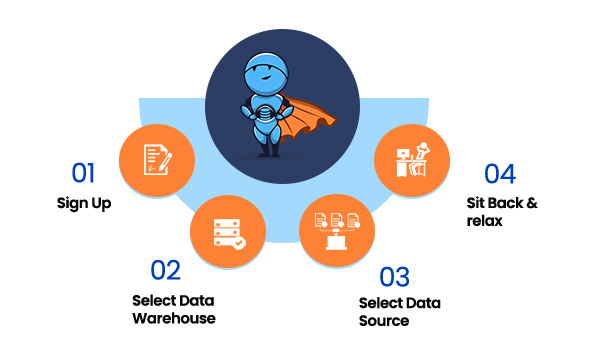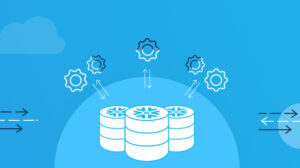Replicate Magento 2 to Snowflake in Minutes
Do you want to migrate data from Magento 2 to Snowflake data warehouse instantly? There is a quick and easy way of data transfer using a cloud data pipeline: Daton.
Due to severe competition, eCommerce companies are aiming to be more data-driven. To optimize their business and reduce losses, it becomes necessary to understand the demand and supply trends, maximize revenue, and offer an engaging customer experience. It becomes essential for businesses to tally the data from the Magento 2 eCommerce platform with data from other business tools such as customer support platforms, websites, inventory management, payment gateways, and CRMs.
The Magento 2 eCommerce platform produces numerous data like product info, shipping, customer info, order details, billing information, inventory details that need to be analyzed, customer feedback, product demand, and user behavior data. These data need to be analyzed to have a complete understanding of the business and identify improvement areas. Nowadays, most online sellers reduce the time & effort of reporting and analyzing their multiple data silos by integrating these massive amounts of data from Magento 2 to Snowflake. Integration makes the process of reporting generation and analysis simpler.
Why Integrate Magento 2 to Snowflake
Magento 2 leverages online retailers to sell their products with ease and maximum reach. The platform generates a considerable amount of data which are not harnessed in most cases. Data from Magento 2 can be used to determine the fast-moving and profitable products, relevant keyword search by buyers, and productive ads. Different tools used by a company such as analytics, logistics, payment, and customer service platforms individually generate a ton of useful data for the business. You can optimize different processes using this data that provides in-depth business insights like customer feedback, product demands, and Marketing ROIs. The problem arises while analyzing this data; separate sheets need to be downloaded from various sources from which detailed reports need to be created. The inventory, customer feedback, customer behavior, and payment gateway data need to be appropriately analyzed to develop a consolidated picture of the entire business. This process takes a lot of time and effort to execute manually, and the analysis, as a result, is delayed and not very accurate.
To solve this issue, relevant data needs from these various data sources need to be replicated from Magento 2 to Snowflake using an ETL tool. Daton is an automated ETL tool that easily integrates with multiple data sources. It can automatically load data into a data warehouse without requiring any coding, generating reports faster.
Magento 2 Overview
In 2015, Magento 2 was released to meet higher performance business growth with the increasing online user base. Magento 2 is the latest version of the e-commerce platform Magento that helps increase the speed and efficiency of certain high-level features, thus increasing online stores’ conversion levels. Ajax’s use makes it easy for users to add products to the cart without reloading the page. The feature of full-page caching built into the platform has proven to load pages much faster, making it scalable even for large-scale businesses. The integration of third-party platforms and other popular extensions like payment gateways such as Paypal and Braintree with Magento 2 makes it much easier to provide better features for your shop. It offers compatibility with different PHP frameworks, various databases, web servers, and cloud services.
Snowflake Overview
The Snowflake warehouse allows users to have a petabyte database and an infinite computation scale without database management. You can extract data from Snowflake through SQL query operations. Snowflake’s cloud data platform breaks down barriers that prevent organizations of various sizes from producing actual value from their data. Thousands of users leverage Snowflake to advance their companies beyond their ability by drawing all their relevant insights from all data generated by the business. Snowflake gears up the enterprises with a single, integrated platform that is the only cloud-built data warehouse. It is instant, secure and has controlled access to their entire data network. A core architecture also exists that facilitates various kinds of data workloads, including a framework to build modern data applications. Snowflake manages all aspects of the data store: organization, metadata, structure, compression and statistics.
How to replicate Magento 2 to Snowflake
There are two ways in which you can replicate Magento 2 to Snowflake warehouse.
Build Your Own data pipeline
Building an in-house data pipeline needs a lot of experience, time and manpower with higher chances of errors. You need to extract data using Magento 2 APIs & then connect it properly with the Snowflake data warehouse.
Use Daton to integrate Magento 2 to Snowflake
Using Daton to integrate Magento 2 to Snowflake is the fastest & easiest way to save your time and efforts. Leveraging an eCommerce data pipeline like Daton simplifies and accelerates the time to build automated reporting to a great extent.
Configuring data replication on Daton on only takes a few minutes and a few clicks. Analysts do not have to write any code or manage any infrastructure, yet they can get access to their Magento 2 data in a few hours. Daton’s simple and easy to use interface allows analysts and developers to use UI elements to configure data replication from Magento 2 data into Snowflake.
Daton takes care of:
- Authentication
- Rate limits,
- Sampling,
- Historical data load,
- Incremental data load,
- Table creation, deletion and reloads
- Refreshing access tokens,
- Notifications
and many more important functions that are required to enable analysts to focus on analysis rather than worry about the data that is delivered for analysis.
Steps to Integrate Magento 2 with Daton

1. Sign in to Daton
2. Select Magento 2 from the Integrations page
3. Provide Integration Name, Replication Frequency, and History. Integration name would be used in creating tables for the integration and cannot be changed later
4. You will be redirected to Magento 2 login for authorizing Daton to extract data periodically
5. Post successful authentication, you will be prompted to choose from the list of available Magento 2 Ad accounts
6. Select required tables from the available list of tables
7. Then select all required fields for each table
8. Submit the integration
Sign up for a trial of Daton Today!
Here are more reasons to explore Daton for Magento 2 to Snowflake Integration.
- Faster Integration of Magento 2 to Snowflake– Magento 2 to Snowflake is one of the integrations Daton can handle very fast and seamlessly. By following few steps, you can easily connect Magento 2 to snowflake.
- Robust Scheduling Options: allows you to schedule jobs based on their requirements using a simple configuration step.
- You get an enterprise-grade data pipeline at an unbeatable price to help every business become data-driven. Get started with a single integration today for just $10 and scale up as your demands increase.
- Zero Maintenance – Daton automatically takes care of all the data replication processes and infrastructure once you sign up for a Daton account and configure the data sources. There is no infrastructure to manage or no code to write.
- Data consistency guarantee and an incredibly friendly customer support team ensure you can leave the data engineering to Daton and focus instead of analysis and insights!
- Support for all major cloud data warehouses, including Google BigQuery, Snowflake, Amazon Redshift, Oracle Autonomous Data Warehouse, PostgreSQL and more.
- Flexible loading options allow you to optimize data loading behaviour to maximize storage utilization and ease of querying.
- Enterprise-grade encryption gives your peace of mind.
- Support for 100+ data sources – In addition to Magento 2, Daton can extract data from a varied range of sources such as Sales and Marketing applications, Databases, Analytics platforms, Payment platforms and much more. Daton will ensure that you have a way to bring any data to Snowflake and generate relevant insights.
For all sources, check our data connectors page.
Other Articles by Saras Analytics,
- Channels in Google Analytics
- Customer Retention Strategy
- Calculate Customer Lifetime Value (CLTV)
- Amazon Attribution
- BI Services and Data Warehousing












